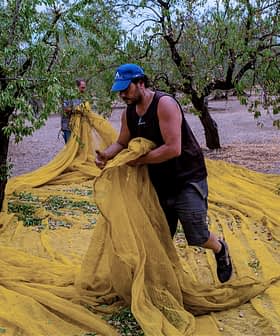Last week the International Olive Council (IOC) and the Food and Agriculture Organization (FAO) of the United Nations signed an agreement to formalize their long-running association.
The memorandum, which was signed during the 113th session of the Council of Members of the IOC, clarified the working details of the partnership that is geared toward supporting the olive sector.
“Formalizing this relationship through a memorandum of understanding lets us frame the scope of our already long-standing relationship,” Executive Director of the IOC Abdellatif Ghedira said.
Signed during a videoconference meeting between Ghedira at the IOC headquarters in Madrid and the director of the FAO investment center, Mohamed Manssouri, in Milan, the agreement “sets out the terms and conditions of collaboration so that we can develop, promote and strengthen joint activities to support a more efficient and sustainable olive sector,” Ghedira said.
A pressing issue listed in their goals was applying their joint expertise on plant protection — with a special focus on Xylella fastidiosa — to impart coordinated information to their members.
The critical need for solutions for the devastation caused by Xylella fastidiosa has recently been underscored following a new outbreak in Puglia late last year, which signaled there is no end in sight for the destruction sowed by what has been termed as “the Ebola of olives” more than seven years after it first appeared in southern Italy.
Other goals outlined by the two organizations during last week’s meeting included working towards optimizing the productivity of the olive sector across the value chain, making knowledge of olive oil quality readily available, preserving and employing olive genetic resources and gathering and sharing information pertaining to the olive sector.
Reporting on the meeting on their website after the meeting, the IOC noted that these activities would enable them to impart information on new trends relevant to the olive sector.
It was further noted by the IOC that their role is vital to alleviate rural poverty, establish food security and enhance the sustainability of the olive sector.
The collaboration between the IOC and the FAO came on the heels of the Council allying with the Culinary Institute of America to promote the pivotal role of extra virgin olive oil in the Mediterranean diet.








